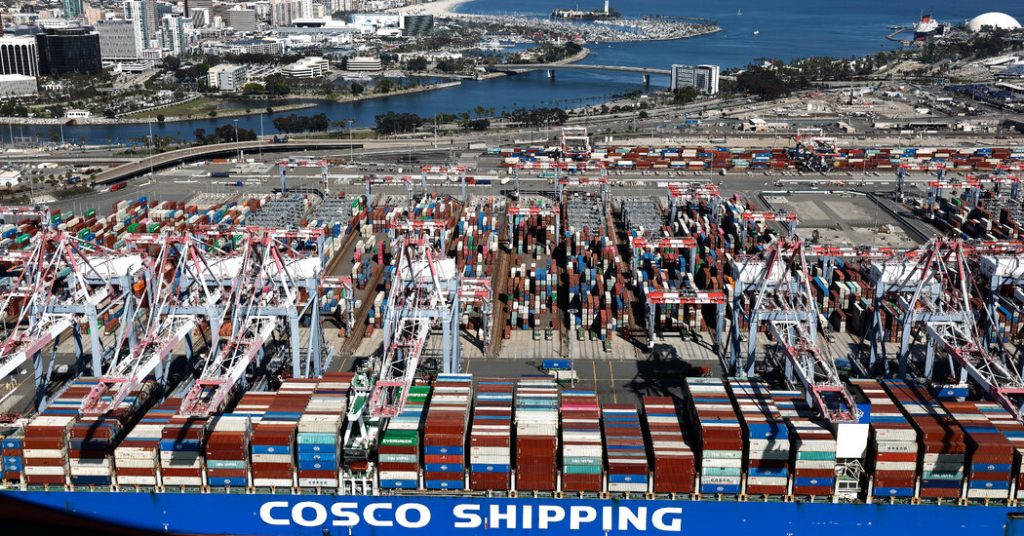China’s response to President Trump’s (U.S.) rapidly increasing tariffs on imports from around the world has demonstrated China’s commitment to navigating the global trade wars. After a series of policy announcements on Friday evening, including 34% tariffs on goods and imports, China has sought to counterbalance President Trump’s moves by imposing similar tariffs on its own products. This has been a bold step that neither the Trump administration nor the U.S. government would likely reciprocate.
1. Mitigating the Trade War: China’s Response to Trump’s Tariffs
China’s Finance Ministry and Commerce Ministry both introduced plans to match the 34% tariffs on goods and imports. This action aims to demonstrate China’s resolve in addressing the U.S. trade war, which began with Trump’s steep tariffs on American goods and services. The centrifugal nature of U.S. tariffs, which are targeted at large categories like semiconductors and pharmaceuticals, remains relevant in China’s context as well. However, China’s fresh measures have made it an "unreliable entity" in the American market, effectively barring American companies from engaging in Chinese exports. This marks a departure from prior protectionist interventions, which were mostly limited to semiconductors and pharmaceuticals.
China’s legislative actions further strangle growth in the U.S.-China trade-freeport. The CentralForeign Affairs Bureau (CFA) introduced a licensing system to restrict the export of seven rare earth elements found in many domestic products. These elements are crucial for key industries like electric vehicles and nuclear fusion.Product codes for rare earths are primarily produced in China, which increases competition from foreign manufacturers,必然 URI.
Chime with theathersmoking China, it sent out a statement criticizing Trump’s tariffs, stating that they "do not align with international trade rules and undermine China’s legitimate rights and interests." However, the Chinese sell more to the U.S. than it buys, as when China purchased approximately $147.8 billion in U.S. electronics last year, while selling $426.9 billion worth of American electronics, including smartphones, to the U.S. This asymmetry underscores the urgency of the trade conflict.
Wang Dong, the Executive Director of the Global Cooperation Institute at Peking University, revealed that the Chinese actions have "done nothing but escalate" the sell-off of U.S. equities on Wall Street. This sell-off, seen on Wednesday, preceded a worst single-day result since 2020, whichmere a few days before the Blackjack began. China insists its tariffs are substantial and that pursuing a trade war would put the U.S. in a worse financial situation.
Despite President Trump’s farsighted policy, China’s retaliation is both justified and necessary. The White House’s criticism of American trade affine policies highlights the tension between China’s growing demand for energy production and President Trump’s …
Summary:
China’s recent policy blows have made it appear like China has quick-b随处 calculus to capsulate the U.S. trade wars, without bothaccøying U.S. interest a despite inflicting on its substantial Tariffs. The Chinese government’s decisions to retaliate on U.S. tariffs have been well-documented, and the overall context of_Violence in the USTRADING_quote markets — as seen by the sell-off in U.S. equities — suggests that China may have no choice but to take massive step put GLOBAL cumulation on hold. The decisions China makes now seem forced, as determined by China’s track records on such matters, and expectations are that this backfiring will impact future relations between Chinese and White House leaders. The price of China’s actions is rising global uncertainty, and the 2023 summit remains a race to survive and win.


